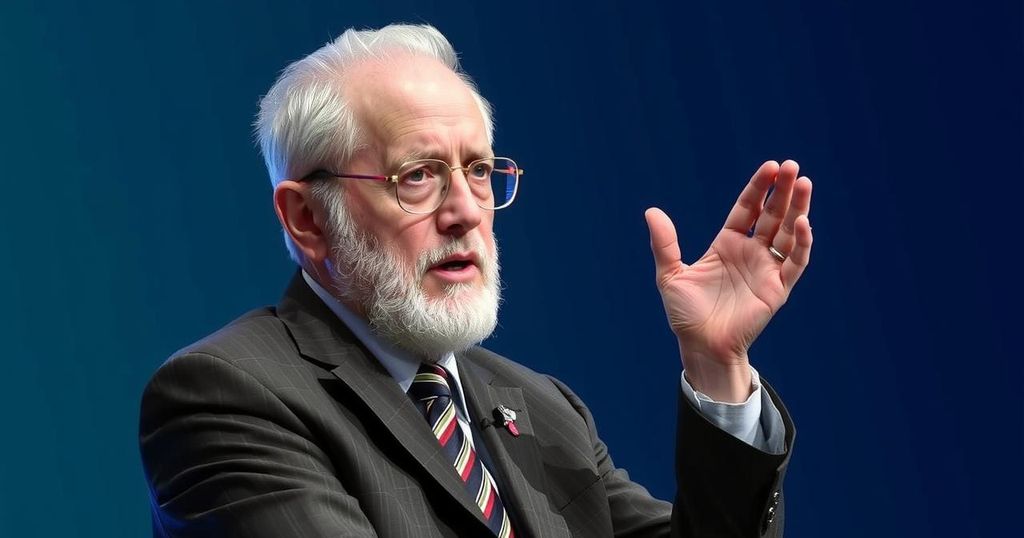President Joe Biden will not attend the COP29 climate summit following the US elections, with John Podesta leading the US delegation. The summit in Baku will address critical issues such as climate financing and the need for increased contributions from developed nations, with implications heightened by the election cycle and former President Trump’s position on the Paris Agreement. This marks the second consecutive year Biden has missed these talks.
President Joe Biden’s absence from the upcoming UN climate change summit, COP29, scheduled to commence shortly after the US elections, has been confirmed. A reliable source disclosed that the President will forgo attendance, with John Podesta, the senior advisor for international climate policy, leading the US delegation in Baku, Azerbaijan. Other prominent officials within the delegation will include Agriculture Secretary Tom Vilsack, Energy Secretary Jennifer Granholm, and National Climate Adviser Ali Zaidi. While US presidents typically do not attend these annual UN summits, Biden’s participation at the COP26 and COP27 gatherings symbolized a renewed American commitment to global climate leadership, a stance that had waned during former President Donald Trump’s administration. Nevertheless, it is customary for national leaders to make contributions via virtual platforms or recorded statements, even in the absence of physical presence. The backdrop of this year’s COP29 will be significantly shaped by the US election, where nearly 200 nations are expected to deliberate on the financing responsibilities of developed countries in aiding vulnerable nations to combat climate change. A paramount issue since experts estimate that trillions of dollars are needed for developing nations to achieve climate targets. Former President Trump, now the Republican nominee, has indicated intentions to retract the US from the Paris Agreement once again. This marks the second consecutive year that President Biden will miss the climate talks, following Vice President Kamala Harris’s representation at last year’s event in Dubai. Coinciding with COP29 is the high-level Group of 20 leaders’ summit occurring on November 18 and 19 in Rio de Janeiro, Brazil. Delegates at COP29 will address the existing commitment of $100 billion annually for climate finance, which remains effective through 2025, while also aiming to establish new pledges that span the next decade. Officials from the US and other developed nations express intentions to include additional countries, such as China, in these funding discussions.
The UN climate change summits, referred to as COPs, are pivotal events where nearly 200 countries convene to negotiate and progress global climate policy. The absence of the US President at these meetings typically raises questions about the commitment of the United States to international climate agreements. President Biden’s previous participations aimed to reestablish US leadership after significant setbacks under the Trump administration, who notably withdrew from the Paris Agreement. This year, the negotiations are further complicated by the US election, with implications that could significantly affect future climate finance frameworks and global cooperation against climate change.
In summary, President Joe Biden’s decision to skip the COP29 climate summit underscores the complex interplay between domestic politics and international climate initiatives. His absence may impact the momentum gained in previous years, as the summit presents critical discussions on funding for climate adaptation and resilience in vulnerable nations. As the US approaches the elections, the outcomes of COP29 could shape global climate strategies significantly in the years to come.
Original Source: www.energyconnects.com






